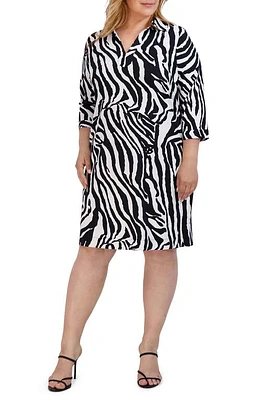Home
The Zebra and the Black Pony
Barnes and Noble
The Zebra and the Black Pony
Current price: $12.99


Barnes and Noble
The Zebra and the Black Pony
Current price: $12.99
Size: OS
Loading Inventory...
*Product information may vary - to confirm product availability, pricing, shipping and return information please contact Barnes and Noble
Eight year-old Maria wants a black pony more than anything in the world. She excitedly hopes that her upcoming birthday is the day her dream will come true. Although her parents can't afford a black pony, a local petting zoo is going out of business and has offered them a free zebra named Ace. When her parents bring Ace home and present him to Maria for her birthday, she is terribly disappointed. Because she doesn't want to hurt their feelings, she pretends to be happy. At night though, she secretly hopes and prays that Ace will transform into the black pony she desires. Maria believes that if she loves him enough, takes really good care of him, and wishes strongly enough, and tells him how cool black ponies are, he will change into the pet she wants. Eventually Ace, who recognizes her disappointment, feels dejected and runs away. He knows that he is not wanted. After Ace is gone, Maria realizes that she truly loves him. In a frantic search her family helps her find him and welcome him back home. Ace is reluctant to return home but Maria assures him that she loves him and accepts him as the zebra he is. The Zebra and the Black Pony is a story about hope, love, understanding, and accepting those as they are.
On the surface, The Zebra and the Black Pony is simply a children's book; however, it can be used as a powerful tool for personal growth. Dr. Ferrentelli wrote the story specifically to be used with Transformational Storytelling, a therapeutic method of storytelling she uses in her practice. Stories and storytellers have been around for thousands of years. We can relate to the characters and their actions. Stories also move us in powerful ways. Because we are one level removed from the action, we can see things more objectively. It is the character's plight, not ours. This empathy can lead us to a deeper understanding of ourselves. The first part of the book explains how this method of personal growth can be used. Readers can return to the story again and again for new insights.


















